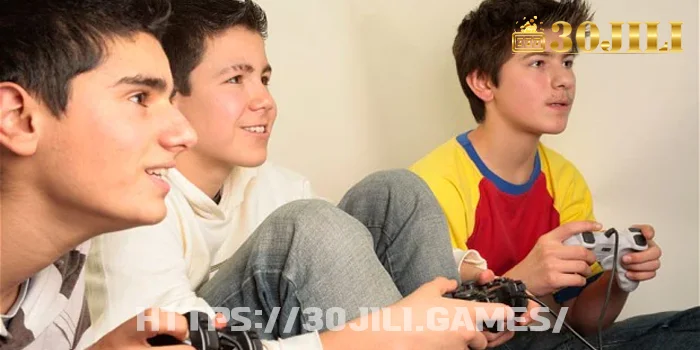How to Teach Responsible Gaming to Children and Teens Effectively

As digital gaming continues to grow in popularity, educating children and teens about responsible gaming has become increasingly essential. Parents play a vital role in shaping healthy gaming habits and ensuring online safety. This guide explores practical tips and strategies to empower parents and foster responsible gaming behaviors in their children.
Why Educating Children and Teens About Responsible Gaming is Essential

The Rise of Online Gaming and Betting Among Youth
The allure of online gaming and esports betting has captured the attention of many young individuals. Accessible platforms and engaging interfaces have made it easier than ever for teens to participate in gaming activities. However, without proper guidance, these activities can lead to unhealthy behaviors. Educating children and teens about responsible gaming helps them understand the risks and make informed decisions.
The Psychological and Financial Risks of Irresponsible Gaming
Irresponsible gaming can lead to several negative consequences, including addiction, financial loss, and emotional distress. Teaching responsible betting to kids equips them with the tools to manage their time and resources effectively. It also fosters critical thinking, allowing them to discern between entertainment and potential pitfalls.
Practical Tips for Parents to Teach Responsible Gaming

Open Communication About Gaming and Gambling
Start an open dialogue about the gaming and gambling elements your child may encounter. Discuss the potential risks of betting and emphasize the importance of moderation. Engaging youth in responsible gambling discussions helps normalize conversations around gaming behaviors and safety.
For a deeper understanding of betting systems, you can explore Do Esports Betting Systems Work? Separating Fact from Fiction.
Setting Boundaries and Screen Time Limits
Establishing clear boundaries is key to promoting healthy gaming habits. Set screen time limits and ensure your child balances gaming with other activities, such as school, sports, and social engagements. Regularly monitor gaming content to ensure age-appropriate participation.
Leveraging Educational Initiatives for Safer Betting
Introduce your children to resources and programs designed to promote safer gaming practices. Platforms like 30JILI provide valuable insights and tools for parents and children to navigate gaming responsibly.
For strategies tailored to young bettors, consider reading A Guide to Responsible Betting: Enjoying the Thrill Without the Risks.
Leading by Example: Parental Influence on Gaming Habits
Children often mimic their parents’ behavior. Demonstrate responsible gaming habits by limiting your own screen time, discussing the importance of budgeting, and highlighting the entertainment aspect rather than the monetary potential of betting.
Online Safety Strategies for Children and Teens
Recognizing and Avoiding In-Game Gambling Elements
Games often incorporate elements like loot boxes, microtransactions, and in-game betting. Teach your children to recognize these features and understand their potential risks. Encourage them to focus on skill-based or story-driven games instead of games with monetary incentives.
Teaching Responsible Betting to Kids in a Digital World
When introducing the concept of betting, ensure it is done age-appropriately. Highlight that betting should never be a source of income or viewed as a solution to financial issues. Reinforce the importance of understanding odds and probabilities to make informed decisions.
For more insights, check out Understanding Betting Odds: Fractional, Decimal, and Moneyline.
Encouraging Positive Gaming Habits for Long-Term Success
Promoting Educational and Skill-Based Games
Encourage your children to engage with games that promote cognitive development, teamwork, and problem-solving. These games not only entertain but also provide valuable life skills. Platforms like 30JILI often feature curated lists of skill-building games.
Celebrating Healthy Gaming Achievements
Recognize and reward balanced gaming habits. Celebrate milestones like maintaining screen time limits or choosing educational games over gambling-focused alternatives. Positive reinforcement fosters long-term adherence to responsible gaming practices.
Resources for Parents on Responsible Gaming Education

Organizations and Support Networks
Several organizations and networks are dedicated to responsible gaming education. These resources offer workshops, guides, and tools tailored to parents and children. Explore online communities to stay updated on best practices and trends.
Engaging with Schools and Communities
Collaborate with schools and community groups to raise awareness about responsible gaming. Educational campaigns and workshops can provide children with the knowledge and tools needed to navigate gaming responsibly.
Conclusion: Empowering Children and Teens Through Responsible Gaming Education
Teaching responsible gaming to children and teens is a collective effort that starts at home. By maintaining open communication, setting boundaries, and leveraging educational resources like 30JILI, parents can foster a safe and healthy gaming environment. Equip your children with the knowledge to enjoy gaming responsibly while avoiding potential pitfalls.
For more tips and strategies on maintaining a safe gaming experience, visit Choosing the Best Esports Betting Platform: A Complete Guide.
Copyright Notice : This article is an original work by How to Teach Responsible Gaming to Children and Teens Effectively It follows the CC 4.0 BY-SA copyright agreement. For reprinting, please attach the original source link and this notice.Original article link : https://30jili.games/post/article/how-to-teach-responsible-gaming-to-children-and-teens-effectively
Frequently Asked Questions
Are live casino games fair?
Yes, reputable online casinos operate under strict regulations to ensure fairness and transparency.
What are fishing casino games?
Fishing casino games are a type of online game that blends the excitement of slot and arcade gaming with fishing-themed gameplay. Players use virtual cannons or rods to catch fish displayed on the screen, each with different values. The goal is to catch the most valuable fish, often using special power-ups and tools, to maximize rewards.












